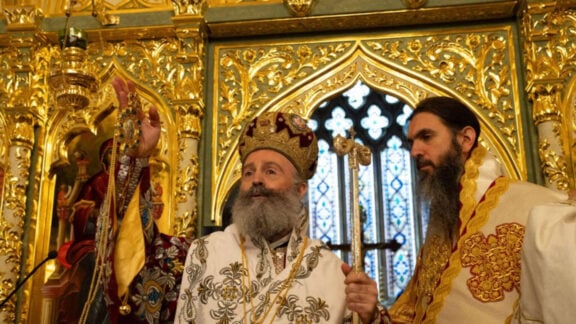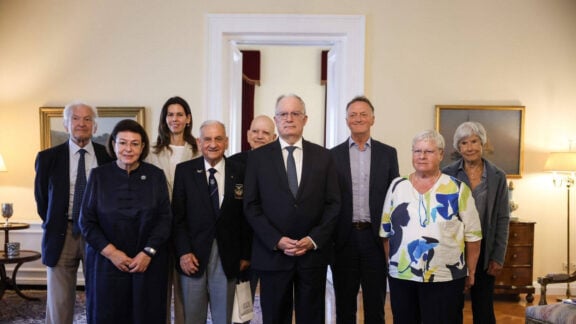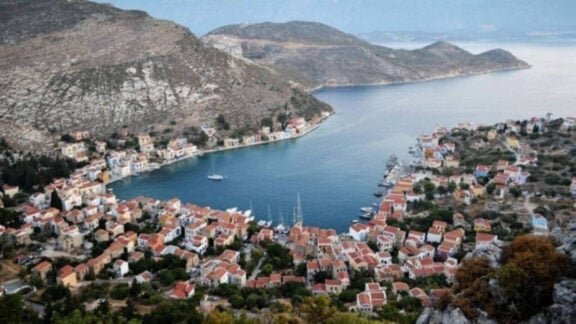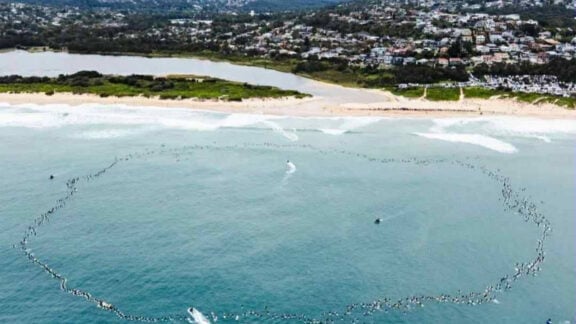“Give them the money or otherwise I will trigger sovereign default,” is the stark message Acting International Monetary Fund (IMF) chief John Lipsky gave to Berlin on Thursday, a day after Athens witnessed some of the most violent protests in more than a year. Tens of thousands of union members and activists gathered in Syntagma square, while a further 20,000 demonstrated in Thessaloniki, during the third nationwide general strike to be called this year.
Such a hardline stance by the IMF towards the EU in their handling of the Greek financial crisis, turns a new and ominous page in the continuing saga of Greek debt relief, and the political toll that it is taking in Greece and Europe. German Chancellor, Angela Merkel will now be forced to agree to bail out Greece for the second time in a year to avoid the meltdown that would inevitably follow if the EU held back the next instalment of Greece’s bailout – a nightmare scenario of imminent Greek default that would create havoc in the markets. In doing so, Merkel and her party’s position once again comes under widespread criticism in Germany, where the rescue of “spendthrift euro zone countries” is deeply unpopular.
The IMF’s blunt message stirred Merkel’s junior coalition partner, the liberal Free Democrats to reiterate the need for the banks to take some of the pain in the Greek crisis. Senior officials in Brussels were reported as saying that Lipsky was determined to pull the plug on the IMF’s funding, if Germany denied to guarantee the latest tranche of the rescue package for Greece.
Meanwhile, in a pall of TS gas in downtown Athens, the political turmoil continues. Last week Greek Prime Minister Papandreou endured immense pressure from members of his own party but reaffirmed his will to continue to lead his beleagured government in its Herculean task to extract Greece from the debt crisis. Papandreou made clear that an internal dispute with his PASOK colleagues would not deflect him. “The country is at a critical juncture,” Papandreou told the Greek Parliament, “and we must be decisive in tackling the difficult challenges that lie ahead.”
On Wednesday, the Greek PM failed in a fourth attempt to secure political consensus to push through a second set of austerity measures required to secure more loans from the EU and the IMF. Unwilling to support their leader, and on the eve of an extraordinary meeting of PASOK’s central committee, PASOK MPs George Lianis, Yiorgos Floridis and Ectoras Nasiokas tendered their resignation. Speculation is rife that more may quit. The extraordinary meeting came at former minister Vasso Papandreou’s request. At the meeting on Thursday, parliamentary group secretary Vassilis Exarhos, said, “we will go forward with president George Papandreou. The country has a prime minister. PASOK has a president”.
Speaking on the same day, leader of the opposition Antonis Samaras, insisted that the government must renegotiate Greece’s agreement with its creditors, claiming the austerity program was failing its objectives. Despite Papandreou’s offer to create a unity government, an offer that was declined by the opposition, the PM told the Greek parliament that he would press on with efforts to acheive consensus. “Now is not the time to give up. Now is the time to continue…to say yes to important change.”
To a standing ovation, Papandreou said he would undertake a cabinet reshuffle before putting it to a vote of confidence by the parliament. The PM admitted there had been “mistakes and shortfalls,” but that,”the next government will be more effective and more cohesive.”
On Friday the anticipated cabinet re-shuflle was announced. His new cabinet while smaller in size did not shock with its composition.
Finance Minister George Papaconstatinou, who drew up the austerity measures, was replaced by Deputy PM Evaggelos Venizelos who will share the portfolio of the Deputy PM with Theodoros Pagalos. Mr Papaconstantinou took over the Environment Ministry Dimitris Dollis kept his former portfolio and remains as Deputy Foreign Minister.
The new cabinet is:
Prime Minister: George Papandreou, Deputies to the Prime Minister: Theodoros Pangalos, Evaggelos Venizelos Minister for the Interior,
Decentralization and Electronic Governance: Dimitris Repas Deputies: Pantelis Tzortzakis, Dinos Rovlias
Minister for Finance: Eleftherios Venizelos Deputies: Phillipos Sachinidis, Pantelis Economou
Minister for Foreign Affairs: Stavros Lambrinidis Deputies: Mariliza Xenogiannakopoulou, Dimitris Dollis Minister for National Defence: Panos Beglitis Deputy: Kostas Spiliopoulos
Minister for Maritime Affairs, Islands and Fisheries: Michalis Chrysochoidis Deputies: Haris Pamboukis, Sokratis Xinidis, Thanos Moraitis
Minister for the Environment, Energy and Climate Change: George Papaconstantinou Deputies: Nick Sifounakis, Giannis Maniatis
Minister for Education, Lifelong Learning and Religious Affairs: Anna Diamantopoulou Deputies: Fofi Gennimata, Evi Christofilopoulou
Minister for Infrastructure, Transport and Networks: Giannis Ragousis Deputy: Giannis Magriotis
Minister for Employment: George Koutroumanis Deputy: Giannis Koutsoukos
Minister for Health and Social Solidarity: Andreas Loverdos Deputies: Michalis Timosidis, Christos Aidonis, Markos Bolaris
Minister for Agricultural Development and Food: Kostas Skandalidis Deputy: John Drivelegas
Minister for Justice, Transparency and Human Rights: Miltiadis Papaioannou Deputy: George Petalotis Minister for Citizen Protection: Christos Papoutsis Deputy: Michalis Othonas
Minister for Culture and Tourism: Pavlos Geroulanos Deputy: Giorgos Nikitiadis
Minister of State to the Prime Minister: Ilias Mosialos
Papandreou has said the reshuffle will revitalise his administration and that he “understood the pain and even the anger of the people.
“The new austerity measures being proposed were “tough and in some cases even unfair … but unavoidable, The sooner we implement them, the sooner we will emerge from the crisis.”
Papandreou criticised international rating agencies for recent downgrades of Greece’s creditworthiness, adding that European officials had also made mistakes in tackling a broadening and deepening debt crisis. Looking forward, he proposed the idea of holding a referendum to reform the Greek Constitution – a move that would allow authorities to cut jobs in the public sector which are currently protected. As the Greek political system looks over the precipice that confronts the country, the need for party political party leaders to become statesmen, and to step forward to acheive consensus, has never been greater.








